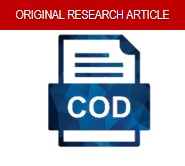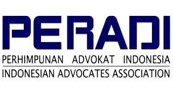The Role of Superintendent of Public Order and Security (Bhabinkantibmas) of Yendidori Sector Police in Handling Minor Crimes
DOI:
https://doi.org/10.46924/jihk.v2i1.129Keywords:
The Role of Bhabinkantibmas, Yendidori Sector Police, Minor CrimesAbstract
This study aims to determine the process of handling minor crimes carried out by Bhayangkara Community Security and Order Trustees (Bhabinkamtibmas )of the National Police, so that from this process it can be seen the extent of the role of Bhabinkamtibmas in handling minor crimes in the Yendidori District, and to find out the obstacles faced by the National Police Bhabinkamtibmas in handling minor crimes in the district. Yendidiori District. The approach used in this research is sociological juridical research. Data collection techniques used are literature studies and field studies (interviews and observations). The results of the study indicate that the Yendidori National Police acts as a mediator and facilitator in every problem that exists in their area of responsibility. If minor crimes are resolved by Bhabinkamtibmas, the state budget for investigation can save billions of rupiah. In the implementation of problem solving activities, there are several obstacles faced by Bhabinkamtibmas, including the influence of the problematic party or third person during the mediation process, the community does not understand the applicable laws and regulations, and Bhabinkamtibmas still does not understand the technique of problem solving, especially administrative problems.
Downloads
References
Jurnal
Arsyam, Ariq Taufiqorrahman. “Peran Bhabinkamtibmas Dalam Upaya Pencegahan Kasus Curanmor Di Wilayah Hukum Polres Kudus.” Indonesian Journal of Police Studies 1, no. 1 (2017): 255–94. http://journal.akpol.ac.id/index.php/ijps/article/view/5.
Aulina, Anggi. “Potensi Pengendalian Sosial Kejahatan: Analisis Kepuasan Masyarakat Terhadap Kinerja Dan Kualitas Pelayanan Kepolisian.” Deviance: Jurnal Kriminologi 3, no. 1 (2019): 1–23. https://journal.budiluhur.ac.id/index.php/deviance/article/view/868.
Harianja, Faisal Ariyoga Anastasius. “Implementasi Pemolisian Masyarakat Oleh Satuan Binmas Dalam Mencegah Tindak Pidana Pencurian Dengan Pemberatan Di Wilayah Hukum Polres Magelang.” Advances in Police Science Research Journal 1, no. 4 (2017): 1485–1532. https://journal.akademikepolisian.com/index.php/apsrj/article/view/104.
Hartono, Muhammad Rudi. “Implementasi Peran Forum Kemitraan Polisi Masyarakat Dalam Mencegah Kejahatan Di Wilayah Hukum Polsek Maro Sebo.” Jurnal Ilmiah Universitas Batanghari Jambi 16, no. 1 (2016): 119–27. http://ji.unbari.ac.id/index.php/ilmiah/article/view/91.
Humberto, Mario. “POKDARKAMTIBMAS Pamulang Sebagai Implementasi Kemitraan Dalam Konteks Community Policing.” Jurnal Kriminologi Indonesia 7, no. 1 (2011): 46 – 66. http://journal.ui.ac.id/index.php/jki/article/view/1094.
Kananurak. “Leadership Role for Producing Professional Employees.” University of the Thai Chamber of Commerce Journal 31, no. 1 (2011): 123–33. https://www.semanticscholar.org/paper/Leadership-Role-for-Producing-Professional-Kananurak/f357ae601385f9b9b51a361aa2f48b771c3e34c8.
Mulyani, Sri. “Penyelesaian Perkara Tindak Pidana Ringan Menurut Undang-Undang Dalam Perspektif Restoratif Justice (Adjudication Of Misdemeanor Based On Legislation In Current Perspectives).” Jurnal Penelitian Hukum De Jure 16, no. 3 (2016): 337–51. https://doi.org/10.30641/dejure.2016.V16.337-351.
Putra, Ryan Tiantoro. “Peran Bhabinkamtibmas Polsek Margorejo Dalam Mencegah Tindak Pidana Curanmor Di Wilayah Hukum Polres Pati.” Advances in Police Science Research Journal 1, no. 2 (2017): 423–70. https://journal.akademikepolisian.com/index.php/apsrj/article/view/26.
Raharjo, Agus, and Angkasa Angkasa. “Profesionalisme Polisi Dalam Penegakan Hukum.” Jurnal Dinamika Hukum 11, no. 3 (2011): 389–401. https://doi.org/10.20884/1.jdh.2011.11.3.167%20389-401.
Ramadhan, Rakhmat. “Model Komunikasi Bhabinkamtibmas Dalam Menjalin Kemitraan Kepada Masyarakat.” Jurnal Ilmu Komunikasi UHO 2, no. 1 (2017): 1–11. http://ojs.uho.ac.id/index.php/KOMUNIKASI/article/view/1889.
Rifai, Eddy. “Model Pelaksanaan Pemolisian Masyarakat (Polmas) Oleh FKPM Dalam Menciptakan Kamtibmas Di Kota Bandar Lampung.” Jurnal Cepalo 2, no. 1 (2018): 43–54. https://jurnal.fh.unila.ac.id/index.php/cepalo/article/view/1761.
Tamboto, Efrata Wijaya. “Peran Bhabinkamtibmas Dalam Mencegah Tindak Pidana Pencurian Kendaraan Bermotor Di Wilayah Hukum Polsek Grogol Polres Sukoharjo.” Advances in Police Science Research Journal 1, no. 4 (2017): 1357–98. https://journal.akademikepolisian.com/index.php/apsrj/article/view/102.
Buku
Asshiddiqie, Jimly. Pengantar Ilmu Hukum Tata Negara. Depok: PT Raja Grafindo Persada, 2013.
———. Perkembangan Dan Konsolidasi Lembaga Negara Pasca Reformasi. Jakarta: Sinar Grafika, 2010.
Cordner, Gary W. Cordner, Larry, K Gainer, and Victor E. Kappeler. Police Operation: Analysis and Evaluation. New York: Routledge, 1996.
Peraturan Perundang-undangan
Indonesia. Peraturan Kapolri No. 3 Tentang Pemolisian Masyarakat (2015).
Kepolisian Republik Indonesia. Peraturan Kapolri No. 3 Tentang Pemolisian Masyarakat (2015).
Wawancara
Iriyanto, M. Bagus. “Wawancara Dengan (Kapolsek Yendidori) Tanggal 26 Juni 2019.” 2019.
Bannegau, Kristianto. “Wawancara Dengan (Bhabinkantibmas Kampung Rarpimbo Distrik Yendidori).” 2019.
Downloads
Published
Issue
Section
License
Authors who publish with this journal agree to the following terms:
- Copyright on any article is retained by the author(s).
- The author grants the journal, the right of first publication with the work simultaneously licensed under a Creative Commons Attribution License that allows others to share the work with an acknowledgment of the work’s authorship and initial publication in this journal.
- Authors are able to enter into separate, additional contractual arrangements for the non-exclusive distribution of the journal’s published version of the work (e.g., post it to an institutional repository or publish it in a book), with an acknowledgment of its initial publication in this journal.
- Authors are permitted and encouraged to post their work online (e.g., in institutional repositories or on their website) prior to and during the submission process, as it can lead to productive exchanges, as well as earlier and greater citation of published work.
- The article and any associated published material is distributed under the Creative Commons Attribution 4.0 International License




 Sinta ID:
Sinta ID: 


















